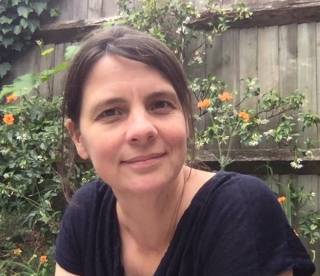Read the interview with Dr Bonamy OIiver on her new grant.

Congratulations on your new grant! Can you tell us more about your project?
Thank you, it’s very exciting! This grant will explore whether a method researchers use to understand children and young people’s relationships with their parents can be useful in mental health services. The method – called Etch-a-Sketch Online (ESO) involves watching parents and children collaborating during an online drawing game. Although it sounds very simple, the interactions we see between parents and children as they play can tell us a lot about their relationship, and how they interact in other circumstances -- they may even be informative for understanding symptoms of mental health. We aim to provide information for clinical practitioners about this sort of research, to learn from them about whether ESO might be useful in different clinical contexts, and if so how.
Can you tell us more about Etch-a-Sketch Online and how this idea came about?
ESO is based on a method that has been used by developmental psychologists for a long time, where families are visited at home (or come to the research lab) and play together on an Etch-a-Sketch toy. The toy is a lineographic drawing canvas, controlled by two dials: one dial draws the line only vertically, and one horizontally. Parents and children are asked to copy a picture using the toy, and researchers give vertical line control to, for example, the parent and horizontal control to the child, with the catch that they have to draw their picture without touching the other person’s dial! This means they have to collaborate to achieve the goal. ESO works in the same way, it’s just that we use keys in place of dials to control an online drawing canvas. The advantage of ESO is that we don’t have to see families face to face because we can video call them online, so it’s more climate-friendly and it’s very cheap! These are the reasons we originally designed it. Lots of people think we must have had the idea because of COVID-19, but ESO was actually live online a few months before the pandemic. Of course, it proved more useful than we could possibly have known! The Co-I on this grant, Professor Argyris Stringaris, is a child and adolescent psychiatrist and he and I discussed that it might be useful for clinical contexts as well as research…hence this project!
What do you expect to achieve with this project?
Ultimately, by understanding how increase standard understanding within clinical practice about parent-child interactions as well as learning from practitioners, we hope to be able to use ESO to improve clinical practice. ESO has potential for informing, for example, diagnosis, treatment, and/or behavioural change due to treatment.
Can you tell us more about how you are collaborating with clinical partners on this project?
Our three clinical partners are organisations whose experts currently provide support for adolescents with mild to severe mental-health problems. We will offer Continued Professional Development (CPD) to these experts at the front line of mental health services. At the same time, we will learn from them about existing practice and how ESO might be integrated. We will explore the interest in, utility of, and practical barriers to, clinical practitioners using ESO for mental-health practice, as well as scoping the utility, practicality and acceptability of ESO in this context. We will also offer Continued Professional Development for clinical practitioners.
 Close
Close

